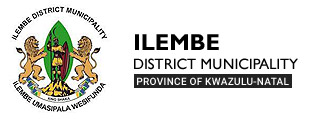Functions of the Executive Committee
EXCO is the highest Committee of the Political Office-bearers which sets the vision, the direction of the Municipality and policy parameters. The Local Government Municipal Structures Act 1998 (Act No. 117 of 1998), as amended, states in Chapter 4 that if the Council establishes an Executive Committee (EXCO), it must elect a number of Councillors necessary for effective and efficient government, provided that no more than 20% of the Councillors, or 10 councillors, whichever is the least, are elected.
The Act further states that EXCO must be composed in such a way that parties and interests represented in the Municipal Council are represented in the same proportion as they are represented in the Council.
As the Principal Committee of the Municipal Council, iLembe Executive Committee identifies the needs of the Municipality, review and evaluate those needs in order of priority. The Committee further recommends to the Municipal Council strategies, programmes and services to address priority needs.
The roles and functions of the Executive Committee
Exco is the highest Committee of the Political Office-bearers which sets the vision, the direction of the Municipality and policy parameters.
The Local Government Municipal Structures Act 1998 (Act No. 117 of 1998), as amended, states in Chapter 4 that if the Council establishes an Executive Committee (EXCO), it must elect a number of Councillors necessary for effective and efficient government, provided that no more than 20% of the Councillors, or 10 councillors, whichever is the least, are elected.
The Act further states that EXCO must be composed in such a way that parties and interests represented in the Municipal Council are represented in the same proportion as they are represented in the Council.
As the Principal Committee of the Municipal Council, iLembe Executive Committee identifies the needs of the Municipality, review and evaluate those needs in order of priority. The Committee further recommends to the Municipal Council strategies, programmes and services to address priority needs.
The Role of Traditional Leaders in Municipality
The Statutory functions of the Executive Committee as set out in sections 49 and 50 of the Structures Act are the following:
- Administer the affairs of the traditional community in accordance with customs and tradition;
- Assist, support and guide traditional leaders in the performance of their functions;
- Work together with municipalities in the identification of community needs;
- Facilitate the involvement of the traditional community in the development or amendment of the integrated development plan of a municipality in whose areas that community resides;
- Recommend, after consultation with the relevant Local House and the Provincial House of Traditional Leaders, appropriate interventions to government that will contribute to development and service delivery within the area of jurisdiction of the traditional council;
- Participate in the development of policy and legislation at local level;
- Participate in the development programmes of municipalities and of the provincial and national spheres of government;
- Promote the ideals of co-operative governance, integrated development planning, sustainable development and service delivery;
- Promote indigenous knowledge systems for sustainable development and disaster management;
- Alert any relevant municipality to any hazard or calamity that threatens the area of jurisdiction of the traditional council in question, or the well-being of people living in such area of jurisdiction, and to contribute to disaster management in general;
- Share information and co-operate with other traditional councils;
- Perform the functions conferred by customary law, customs and statutory law consistent with the Constitution.
- To uphold the values of the traditional community;
- Reject and proscribe such practices as the sowing of divisions based on tribalism;
- Promote peace and stability amongst members of traditional communities; and
- Promote social cohesion within the traditional community
